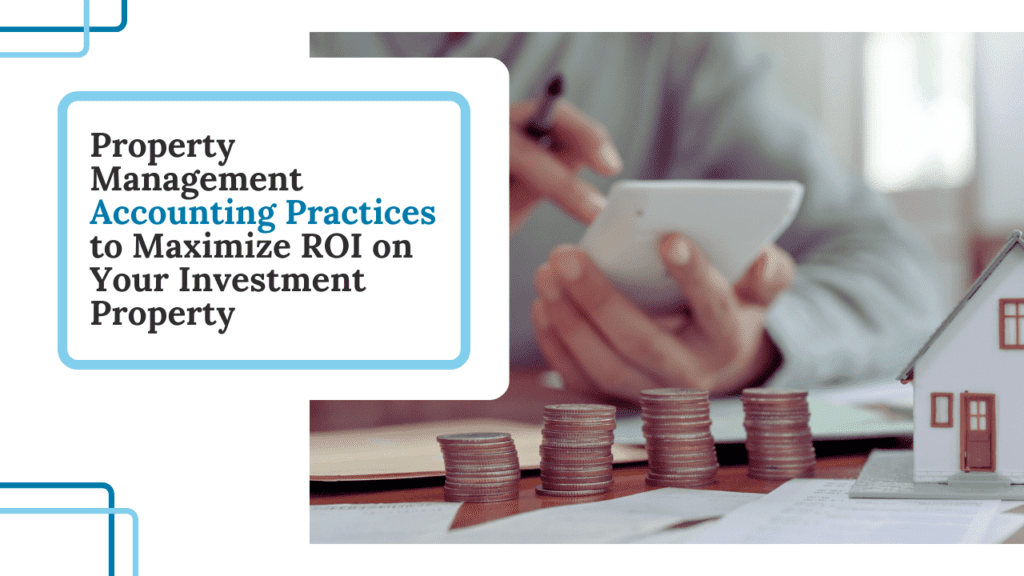
How are you doing with your rental property accounting? Does it serve your investment goals? Is it helping you to maximize your return on investment (ROI)?
If not, you should consider whether there are any changes that can be made to improve how you’re tracking your income and expenses, running financial reports, and providing a picture of your financial health. As San Diego property managers, we have software and technology that help us to implement transparent and detailed accounting practices into the way we manage investments. It allows our owners to stay connected to the profitability of their properties.
For independent landlords, we know the accounting part of renting out an investment home is not always fun.
Tracking income and expenses as part of the general process of renting out a home, but if you want to maximize what you’re earning, you have to make it more than that. Rental property accounting actually has an impact on what you earn and how you grow your portfolio.
Let’s take a look at some ways that improving rental property accounting can impact your earnings.
Audit Your Property Management Accounting
Start with an audit of your accounting practices.
Take a look at your books and how you keep them. How often are you reviewing what you earn and spend? Are you measuring these numbers against your budget? What’s your system?
As you’re evaluating how you manage the documentation and tracking of these details, think about whether those practices are earning you more or costing you more.
With the right accounting tools and software, investors will see themselves increase what they earn and decrease what they spend. We’re surprised when a real estate investor in San Diego cannot say with certainty what their assets are worth and how they plan to maximize their value. That can be costly. Knowledge is power and the more you know about your investment properties and what they’re earning or losing, the better decisions you can make.
Improved accounting practices can increase ROI and reduce the risk of unexpected losses.
Rental Property Accounting Technology
Technology is going to lead you to better accounting and more reliable ROI. There’s a lot of accounting software out there, and it can help with banking, bookkeeping, documentation, and reporting.
Working with a team like ours, you can expect high quality, innovative property management technology that allows us to integrate every part of your property’s financial history and situation. We’ll use our technology to handle:
- Generating financial reports and monthly statements.
- Owner portals, which allow you to see where your property stands.
- Tenant portals, where residents can pay rent online.
- Tax documents, including 1099s.
- Access to any financial documents you need, including the lease agreement and maintenance invoices.
The best programs and platforms are accessible, user-friendly, and transparent. Anytime there’s an audit, a court action, or even a complaint or dispute from an HOA or a resident or a lender, having the documentation easily available will help.
San Diego property management companies can help with the technology and the accounting. Choosing to work with an experienced and established company that meets every need from the beginning to the end of the investment process is especially beneficial to you and your ROI.
At Chase Pacific, we have customized plans in place for each investor who chooses to partner with us. The accounting is taken care of, as is the reporting and the documentation. There’s no need for our investors to buy any software or download any new apps. We take care of all that ourselves, providing the required information and reports when necessary.
San Diego Rental Property Banking
Your business banking should be separate from your personal banking.
If you don’t have a separate account for your rental properties, you should strongly consider it. You’re running a business, even if you’re only renting out one home. Many investors establish an LLC, and in that case, separate funds are a legal requirement. Even outside of an LLC, it’s just good business to keep personal and real estate income and expenses separate. You can easily make a mistake if they’re combined, and it will cost a lot to untangle those errors.
If you own multiple investment properties, it will keep you further organized to set up different accounts for each rental property. This is not a lot of work. In fact, it can save you work. This is a specific location for rent, security deposits, and all the money that’s associated with an individual property. It’s not expensive to open and maintain a bank account, and having several will give you some leverage with your bank. You can develop a relationship that may lead to lower fees and extra support.
Include a local banker in your circle of professional contacts when you’re investing in rental property. A good relationship will maximize ROI because a strong professional network always yields great results. Get to know professional brokers, too. They will have their own relationships with banks and lenders.
Make Budgeting and Forecasting a Priority
Budgeting is an important part of your investing process. Before you buy a rental property and as you move through the leasing and management process, you’ll want to know how much it’s going to cost to lease, manage, and maintain the investment.
This is especially important when it comes to variable expenses like vacancy and maintenance. You know exactly what your mortgage payment and insurance will cost each month, but it’s more difficult to project what you’ll spend on repairs.
We recommend that you set aside a maintenance reserve, if you can. Put a small portion of the monthly rent you collect into a reserve fund so you’re prepared when you have to replace an appliance or pay for a plumber.
Set up a budget for recurring expenses you can plan on, such as landscaping, property management fees, and pest control. Forecast when you’ll have to make big expenditures. Plan for your new roof, for example, even if you won’t have to worry about it for five or ten years. Estimate the lifespan of your air conditioning unit, your flooring, and your appliances.
San Diego Property Management Recordkeeping and Documentation
As property managers, we are documenting everything associated with your rental property. Documentation is a big part of increasing your ROI. When you’re tracking and organizing all of your expenses, you have an easier time taking advantage of tax deductions and write-offs. Documentation is always needed to support the deductions you claim. Keep accurate, detailed, and transparent records. Ideally, they will be digital.
If you work with a team like ours, we’ll provide access to technology, which includes an innovative accounting system. If you’re not working with a property manager, look for apps and software platforms designed to support individual, private investors. The important features to look for include the ability to access records when they’re needed.
Your documentation must include:
- Rent that’s collected.
- Overdue fees and penalties.
- Security deposits.
- Monthly income and expenses.
- Account balances.
- Maintenance reserves.
This type of documentation and tracking will assist with ROI because it helps you understand your metrics. You’ll be able to set benchmarks and see when you meet or fall short of goals.
Supporting documents also provide evidence if there’s an audit or questions about tax returns. The IRS may demand proof that the income and expenses being reported are accurate. With a solid and digital system, these records can be accessed and documentation provided at a moment’s notice.
Accounting and Financial Reports and ROI
 Generating reports can help you increase ROI and understand where each property stands in terms of profitability and needs.
Generating reports can help you increase ROI and understand where each property stands in terms of profitability and needs.
Accounting reports and statements can serve as an easy guide in understanding how much is being earned and spent on your property. It can easily alert you to deficits. With good bookkeeping, you can identify properties that aren’t performing as well as they should. You can set new goals.
The frequency and set-up of these reports depends on you. Some investors like to run a monthly report and others are fine with a quarterly look at where things stand.
Financial trends should be easy to spot. This is essential in budgeting and forecasting, which will directly impact your long term ROI and immediate rental income. This information helps you make smart decisions about which properties to hold, which to sell, and when to engage in creative endeavors such as a 1031 exchange.
Even for investors who are not ready to talk about full-service property management, a local professional can provide recommendations and insight about the systems that might work best. A good property manager will also make some referrals to accounting professionals and CPAs if that will help.
We know that accounting and bookkeeping isn’t the best part of investing in San Diego real estate. But, these are some of the things we can share with you in the hopes that you will take more control over your own accounting practices.
Working with a San Diego property manager is another great option. You won’t have to worry about your accounting at all; we’ll take care of everything!
Please contact us at Chase Pacific Property Management & Real Estate Services for additional information.
